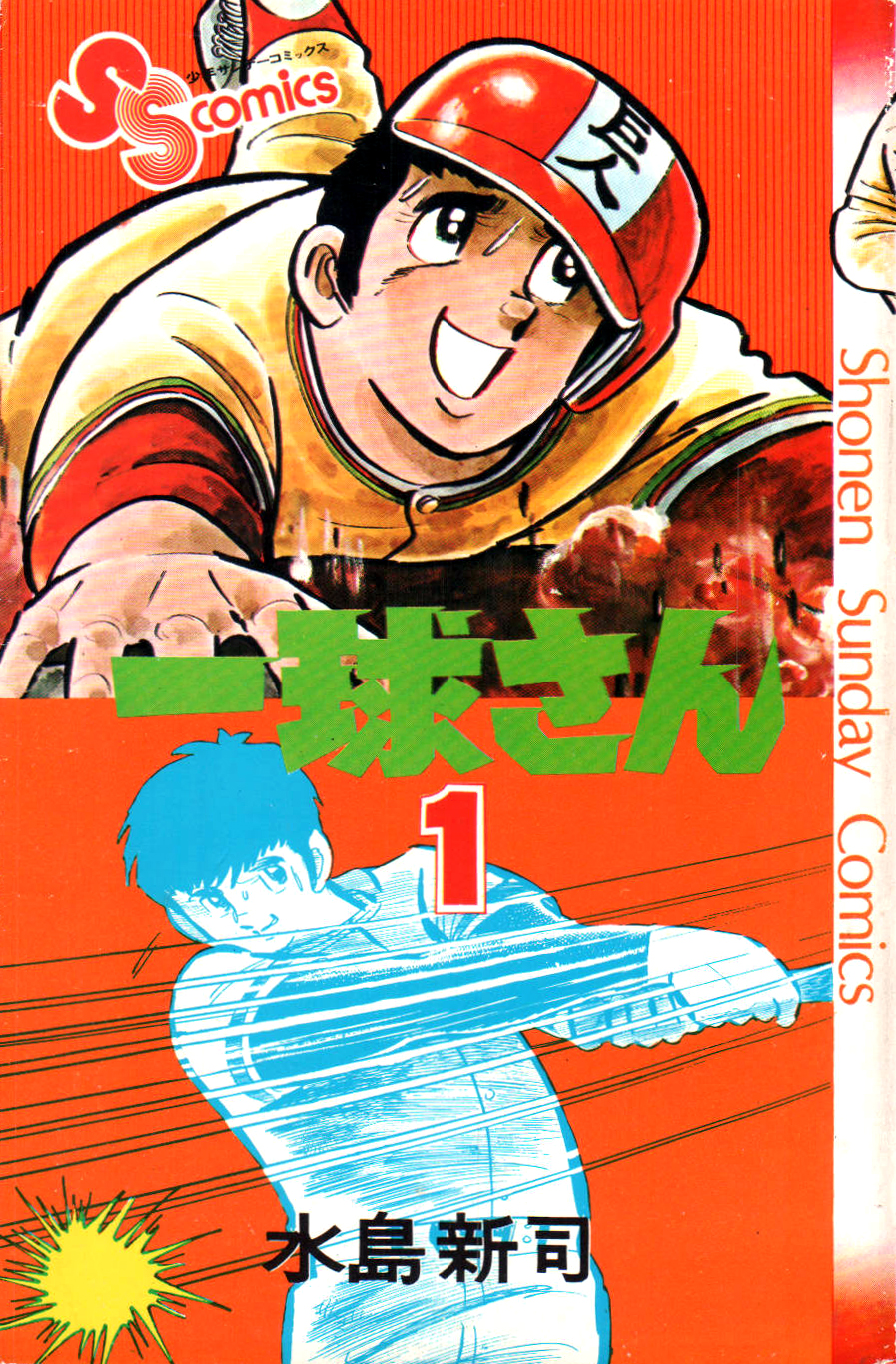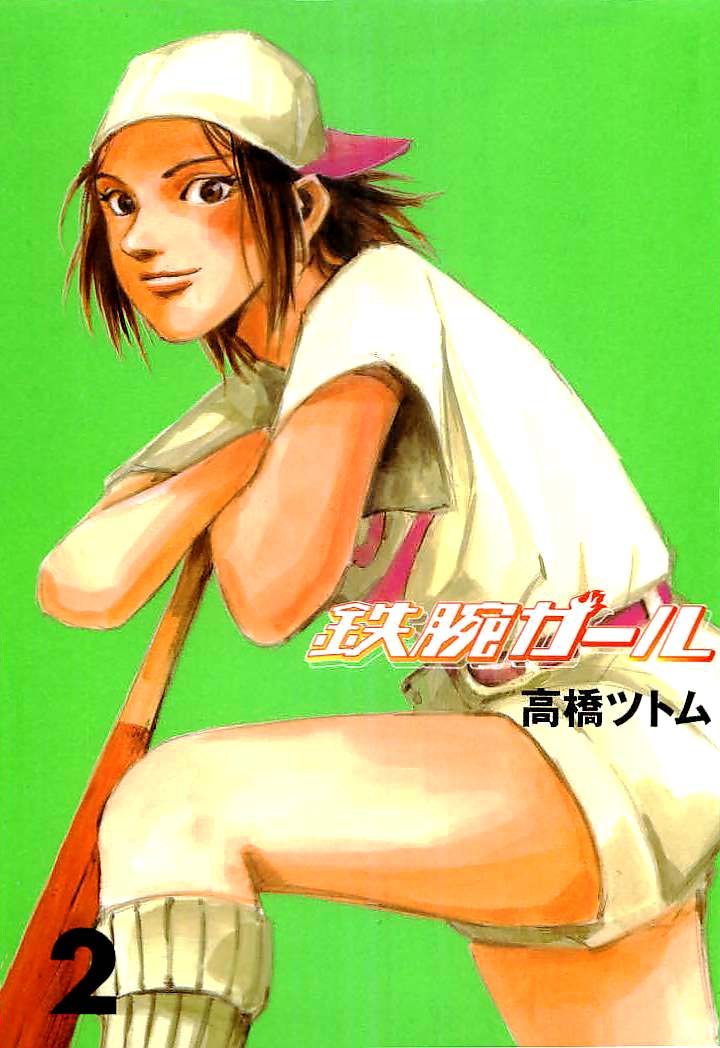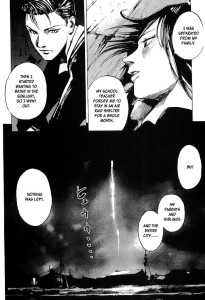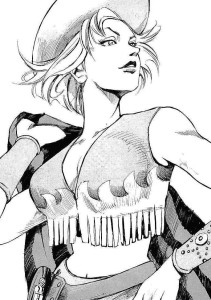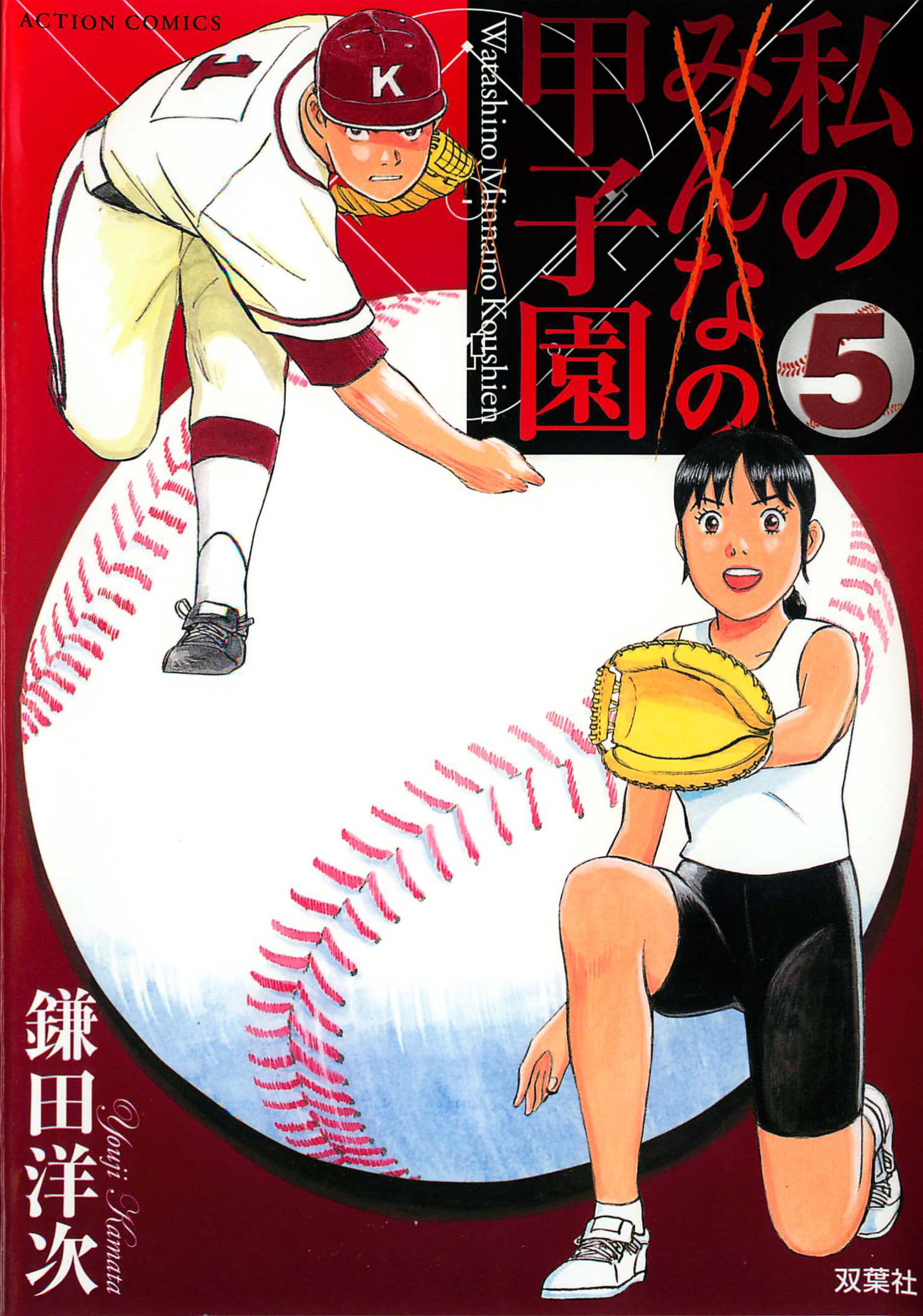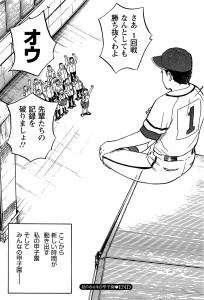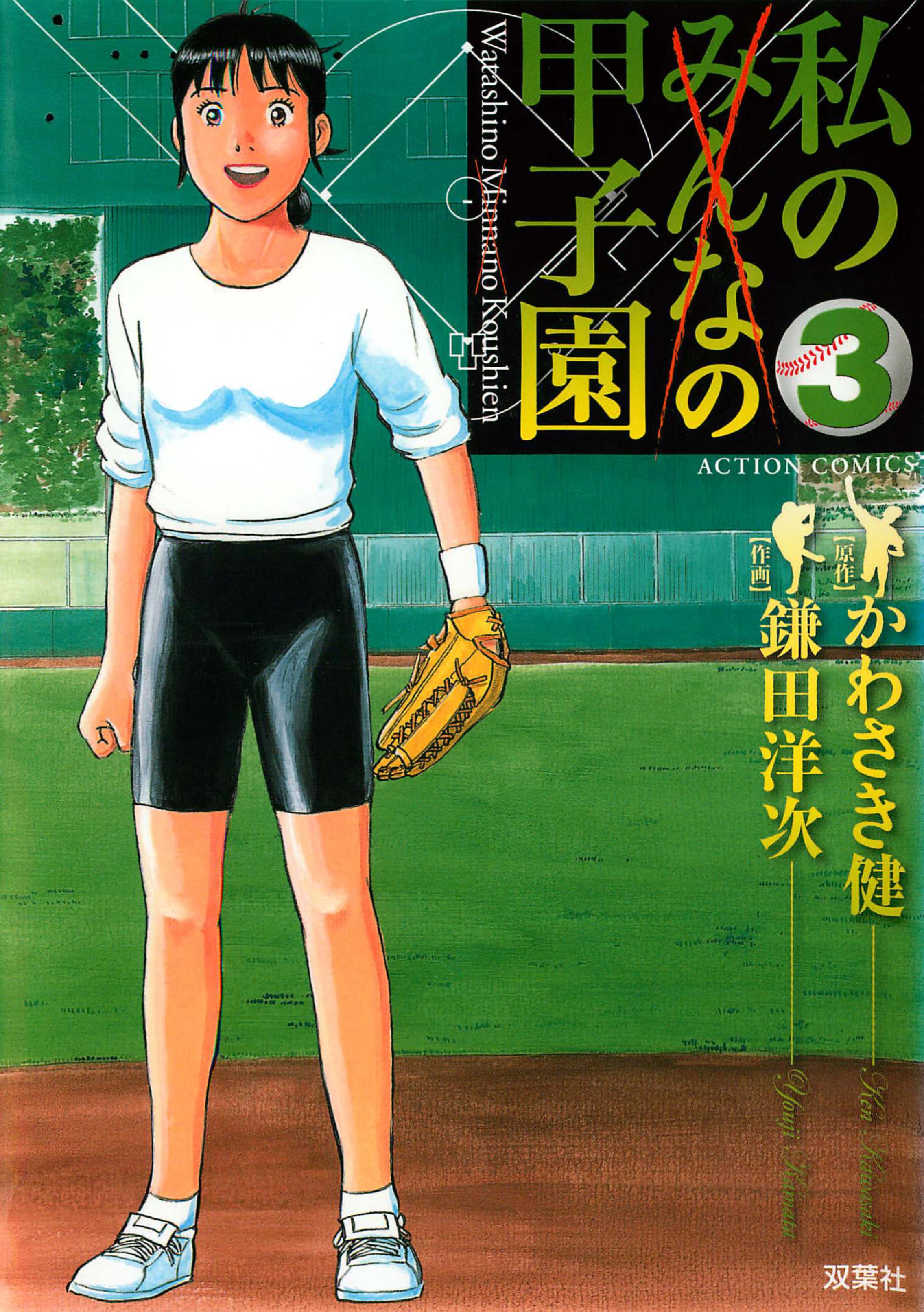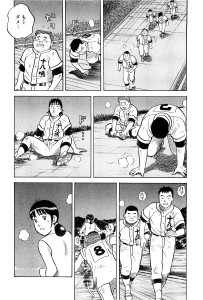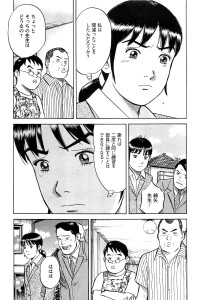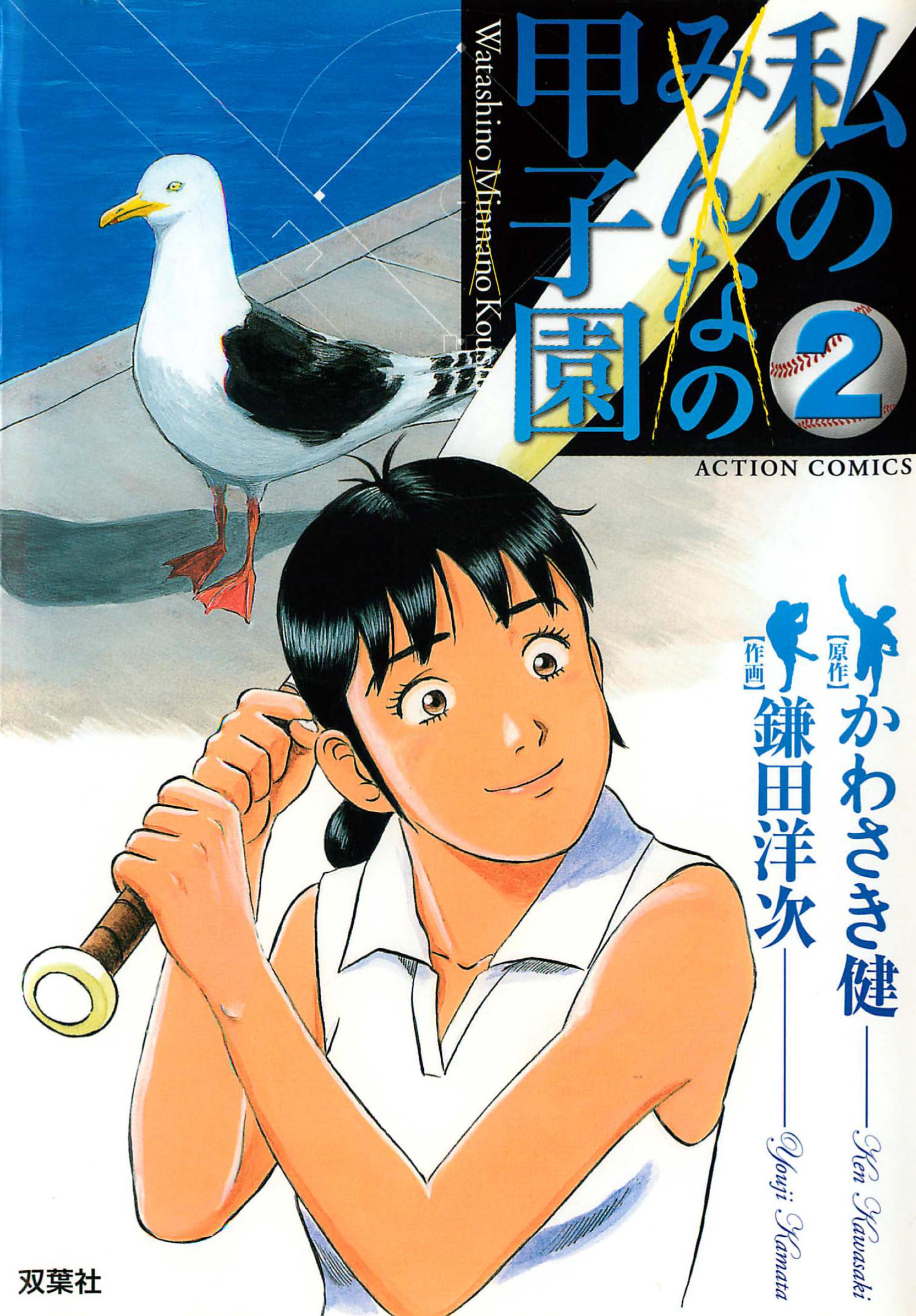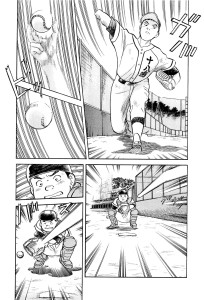More baseball manga! This time from the most prolific and best-known baseball manga specialist in Japan, Shinji Mizushima. He’s the author of such long-running titles as Abu-san (107 volumes and counting) and Dokaben (48+52+45+11 and counting volumes), so while you’ll get your fill of baseball with him, some of titles are rather intimidating to pick up. That’s why I decided to start with Ikkyuu-san, a relative lightweight at only 14 volumes. So far, so good.
The story so far: Ikkyuu Sanada is a country bumpkin from Shizuoka who knows almost nothing about baseball. Somehow (we haven’t been told exactly why/how yet) he is recruited to join the Kyojin Academy High School baseball team, the best team in Tokyo, and arrives just in time to start as clean-up in a practice game against Jingu University, the best college team in Tokyo. What kind of impact will Ikkyuu have in this clash of giants?
Quite a bit, actually. For one thing, despite his protests to the contrary almost no one believes he’s really a newbie, so all the things he does by accident – catching a ball with his bare hand, standing still at the plate because the ball is too fast – are taken as signs that he’s mocking the other team, which infuriates Jingu to no end. So much so that by the end of volume 1 they’ve taken out all their second-string members and put in the best of the best against the Kyojin team. Will this turn the tide for them? We’ll see in volume 2.
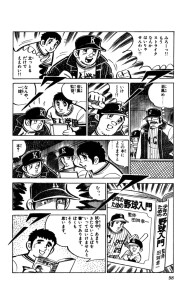
I’m enjoying Ikkyuu-san a lot so far, though his unbelievable “I joined a baseball team without knowing diddly about baseball but somehow I am so good at it” shtick got old after a few chapters. You can only have so many comical misunderstandings about the rules of baseball before the reader starts wanting something a little deeper. That said, it is quite amusing how the more he struggles, the more everyone else in the stadium is convinced that he’s actually a genius who is just playing dumb. Will they ever find out the truth?
So it’s funny in its own way, but even better it’s got lots of baseball action right off the bat. No time is being wasted with background stories and tears and long tirades, or even lengthy training sequences. Both teams are elite from the start, they know what they’re doing out there and they’re getting right down to it.
The results of this match is something of a foregone conclusion (but I won’t spoil) but the author still takes the time to chronicle every at-bat and show the thoughts of the pitcher and batter and sometimes even of those in the dugout and in the crowd. I don’t know if I’d want that for all 14 volumes, but for the first match of the game it’s a great way to get to know the characters.
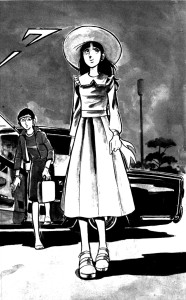
The art might be old, but baseball is still baseball, the rules haven’t really changed and the action is simply drawn but easy to follow. The only thing that seemed outdated was the super-talented transfer students showing up and suddenly dominating the game tropes. I remember there was an arc in Last Inning dedicated to finding a way to circumvent the fact that schools are now banned from using recruited transfer students for a year in official games or something like that. No such problem in Ikkyuu-san, either because the rule had not been made yet or because the transfer students are first-years (I think?) or because this is a practice game, not an official match.
So it looks like volume 1 was spent introducing the major characters (including a girl who will almost certainly become Ikkyuu’s love interest). I’m guessing volumes 2 and 3 will be used to round up this match and then the story, if it exists, will get underway from volume 4 onwards. If the rest of the series lives up to the promise of the beginning, I’ll be reading all the way through with glee.
Now. Now that I’ve got the ‘review’ out of the way, let me just add as aside that Ikkyuu-san really gets my translator juices flowing. It’s something that would be fun to translate because of all the jokes and comments that depend on the kanji used to write something.
Example: Ikkyuu’s name, 一球 is from the baseball phrase 一球入魂 (put your soul into every ball), so the audience say that to cheer for him sometimes. It would be boring to write reams of text explaining all that, but at the same time I wouldn’t want to leave it in romaji. Would I explain it once then use a replacement cheer every time? I can’t just ignore it because he introduces himself that way.
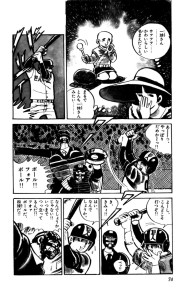
Another example: 一休, meaning ‘a short break’ is also pronounced ‘Ikkyuu’, so his team-mates teasingly call him that a few times. Would I fill the bubble with kanji + text, explaining the joke and thus rendering it unfunny? Do I have a choice? Incidentally ‘Ikkyuu’ is also the name of a monk from a Japanese legend as well as a popular cartoon character at the time. That’s referred to a couple of times too, but that wouldn’t be a problem to express.
Example three: At some point a character compares the three transfer students + Ikkyuu to the Three Musketeers plus D’Artagnan. In Japanese Three Musketeers is 三銃士 (sanjuushi) so they change it to 三球士 (sankyuushi) + 一球 = Three ballsketeers + One Ball (Ikkyuu). It works in Japanese but it’s so wordy and unwieldy in English. How best to convey the idea while keeping it interesting? I don’t want to go the ‘copious footnotes’ route. If anything I’d rather translate it away then add a note at the back with all the boring explanations for the people who care. Or, best of all, I’d like to find a pun that works and can be carried all the way through.
But those are just ramblings, it’s not like I’m going to actually do any of this. But it’s fun to speculate sometimes, isn’t it?
